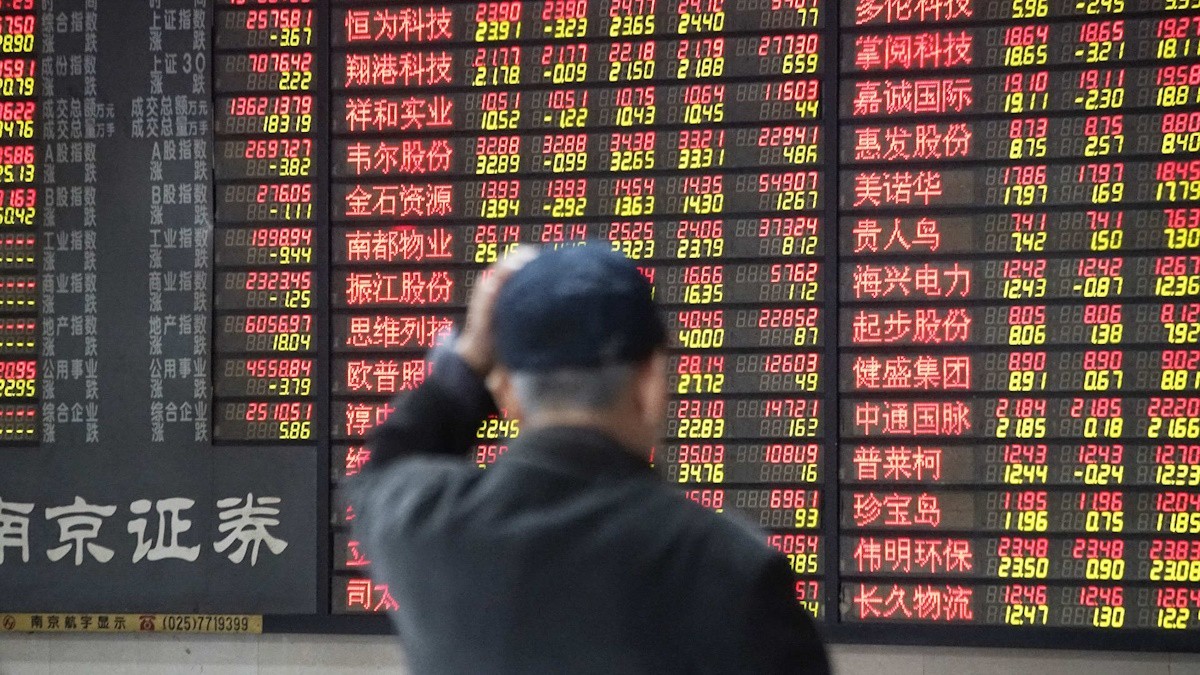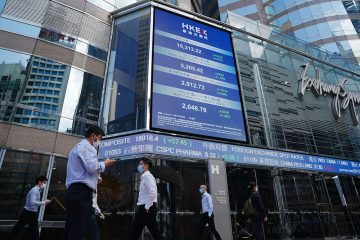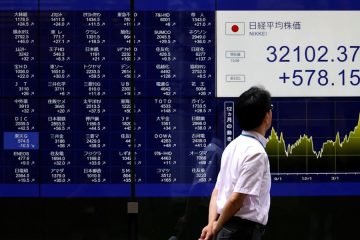China Gets Tough on Insider Selling to Arrest Market Slump

Chinese regulators have taken a novel approach to prop up the country’s faltering stock market by banning many companies’ biggest shareholders from selling.The country’s $11 trillion domestic stock market has slumped this year after a post-Covid rally, hurt by a weak economy, an outflow of foreign money and a rising sense of nervousness among small investors. The CSI 300 index of the country’s largest listed companies is down 4.1% in the year-to-date period, following losses in the previous two calendar years.
Authorities in China have taken several steps to boost the market recently, including cutting a tax on stock trading and slowing the pace of new listings to help balance supply and demand. The country’s securities regulator has also curbed share sales from controlling shareholders of listed companies that haven’t paid dividends in the past three years, or whose shares are trading below their IPO prices or net asset values.
The new rules effectively placed share-sale restrictions on about half of the 5,000-plus companies that trade in Shanghai or Shenzhen, according to Wind, a provider of financial data. Major shareholders of all listed companies were also encouraged to maintain their ownership stakes or lock up their shares for longer periods. Shareholders of more than 200 companies sprang into action by canceling plans to trim stakes, making public promises not to reduce their holdings further and extending lockup periods for their shares. Dozens of other companies proposed buybacks that could help support their share prices.
Authorities are swiftly cracking down on rule breakers. Xu Xiong, the chairman and controlling shareholder of Shanghai-listed Eastern Pioneer Driving School, sold about $3 million worth of shares on Aug. 28, a day after the curbs were put into place, according to a regulatory filing. The shares were trading well below their IPO price. On Sept. 15, the Beijing-based company said it had bought back the shares that Xu sold, adding that it was notified by Xu’s family members that Shanghai police had issued an arrest order for him for suspected stock-market manipulation. Xu couldn’t be reached for comment. Eastern Pioneer didn’t respond to a request for comment.
In early September, a couple that owned 7.1% of a Shanghai-listed furniture maker unloaded almost all of their shares—without timely disclosure—over two days when the company’s stock traded near a multiyear high. The shares sold were worth about $49 million in total. China’s securities regulator fined Yu Fanyi, a director of Nanjing OLO Home Furnishing, and his wife the equivalent of $4.5 million on Sept. 15, a large sum compared with previous penalties for similar cases in China. The pair was ordered to forfeit an additional $2.3 million in what the regulator said were illegal trading profits. Nanjing OLO didn’t respond to a request for comment.
A third company, Xi’an Xice Testing Technology, issued an apology last week after three of its controlling shareholders collectively sold about a 1% stake in late August and early September when its shares were trading below their IPO price. A regional branch of the securities regulator swiftly reprimanded the company and ordered it to correct its actions and submit a written rectification report. The Shenzhen-listed company said the ownership reduction wasn’t intentional and was the result of an error, adding that it had repurchased the shares by last Friday.
Corporate insiders in China have been net sellers of shares of their own companies for years. In 2020, officers and directors at more than 1,200 companies net sold the equivalent of $17 billion worth of stock, the highest total on record, according to Wind. So far this year, company insiders have sold a net $4.4 billion worth of shares.
Chinese stock benchmarks are slightly above where they were before the new rules on controlling shareholder sales were rolled out. On Sept. 20, a state-owned media outlet, Securities Daily, said “all parties in the market have responded positively” so far. The article also said regulators responded to rule violators with “a thunderous blow and punished them severely,” showing the authorities’ determination to take care of the market.
China’s securities regulator is under considerable pressure from higher authorities to stabilize the stock market and restore investor confidence and it is pulling whatever levers it has, said Thomas Gatley, a senior analyst at Gavekal Dragonomics. While the tightened supervision could help stabilize the market in the short run, Gatley said it could also discourage institutional investors from putting more money into China’s stock market because of uncertainty over whether they can sell out in the future. “It undermines the perception of the Chinese stock market as a liquid place to allocate capital,” he added.





